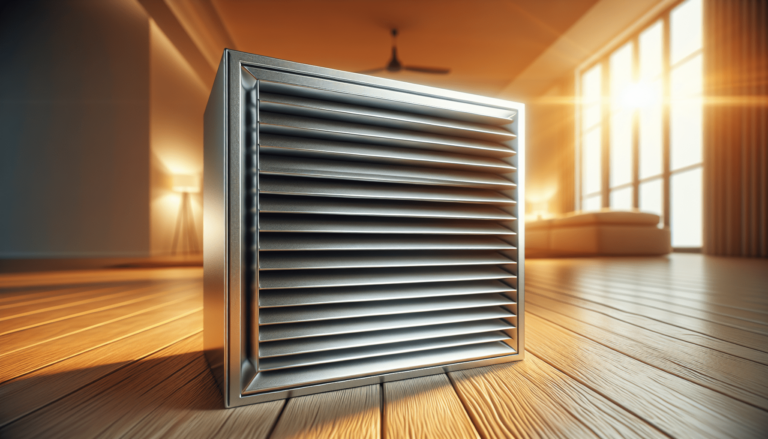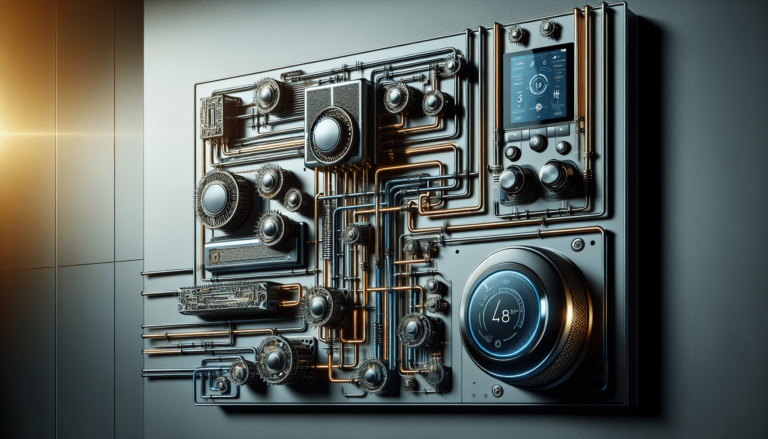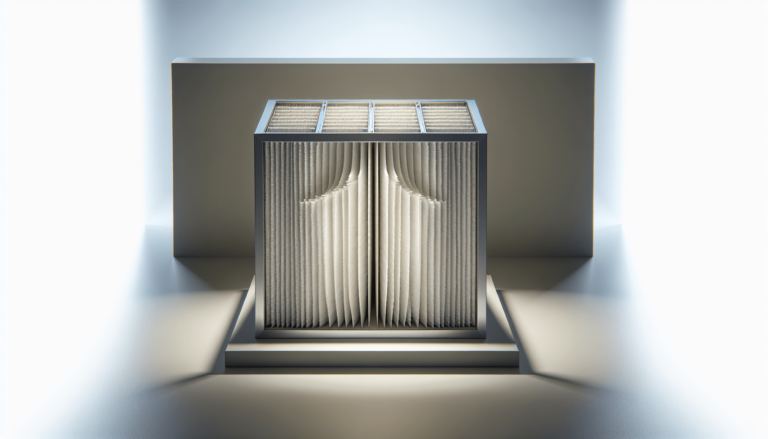

HVAC Services
Get Professional Repairs From The Area's Trusted HVAC Technicians. Ask About Our Services! We Offer Professional Heating & Cooling System Repairs And Guarantee Long-Lasting Results.
Got Question? Call us: (850) 678-2665Financing
The Importance of Air Filters in HVAC Systems
Discover the importance of air filters in HVAC systems. Learn how they improve air quality, increase energy efficiency, prolong the system's lifespan, and benefit your health. Contact Tempacure Heating and Air Conditioning for more information.
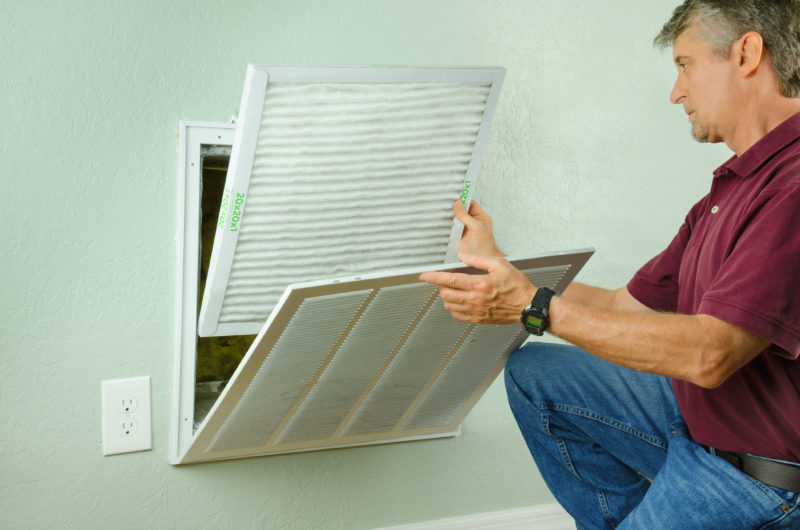
Air filters play a crucial role in HVAC systems, ensuring clean and healthy air circulation throughout your home or workplace. These filters are designed to trap dust, pollen, pet dander, and other airborne particles that can irritate allergies or worsen respiratory conditions. By removing these pollutants from the air, air filters not only improve the indoor air quality but also contribute to the overall efficiency and lifespan of your HVAC system. To learn more about the importance of air filters and how they can benefit your HVAC system, contact Tempacure Heating and Air Conditioning at (850) 678-2665 or visit their website at https://tempacurehvac.com.
The Importance of Air Filters in HVAC Systems
When it comes to HVAC systems, air filters play a crucial role in ensuring optimal performance and maintaining a healthy indoor environment. From improving air quality to increasing energy efficiency, air filters offer a range of benefits that can enhance the overall comfort and well-being of occupants. In this article, we will explore the various reasons why air filters are essential components of HVAC systems.
1. Maintaining Indoor Air Quality
One of the primary functions of air filters is to maintain indoor air quality. By trapping pollutants and particles, air filters prevent them from circulating throughout your living or working space. Dust, dirt, pet dander, pollen, and other airborne contaminants can have a negative impact on respiratory health and overall well-being. With a high-quality air filter in place, these potential hazards can be captured, ensuring that the air you breathe is clean and free from harmful substances.
1.1 Trapping Pollutants and Particles
Air filters act as a barrier, capturing and trapping various pollutants and particles present in the air. This includes dust, bacteria, viruses, allergens, and other microscopic particles that can cause respiratory issues and allergies. By effectively filtering these pollutants, air filters help create a healthier indoor environment.
1.2 Removing Allergens and Asthma Triggers
For individuals with allergies or asthma, air filters can be particularly beneficial. Airborne allergens, such as pollen and mold spores, can trigger allergic reactions and asthma attacks. A high-efficiency air filter can capture these allergens, reducing the risk of respiratory distress and providing relief for allergy and asthma sufferers.
1.3 Reducing Mold and Mildew
Moisture and humidity levels in indoor spaces can contribute to the growth of mold and mildew, which can negatively impact air quality and pose health risks. Air filters can help prevent the spread of mold spores by capturing them before they have a chance to circulate. This reduces the likelihood of mold and mildew growth and helps maintain a healthier indoor environment.
1.4 Eliminating Unpleasant Odors
Air filters can also help eliminate unpleasant odors by capturing and removing particles that contribute to bad smells. Whether it’s cooking odors, pet odors, or other sources of unpleasant smells, a good air filter can play a significant role in keeping your living or working space fresh and odor-free.
2. Increasing Energy Efficiency
Air filters not only contribute to indoor air quality but also play a crucial role in increasing the energy efficiency of HVAC systems. By ensuring that clean air flows freely, air filters help the system operate at its best, reducing energy consumption and lowering utility bills.
2.1 Reducing Energy Consumption
When air filters become clogged and dirty, the HVAC system has to work harder to pull air through, resulting in increased energy consumption. By regularly replacing or cleaning air filters, you can prevent this energy inefficiency and ensure that your HVAC system operates at its optimal level.
2.2 Lowering Utility Bills
As the HVAC system becomes more energy-efficient with clean air filters, you can expect to see a reduction in your utility bills. When the system doesn’t have to work as hard to push air through clogged filters, it consumes less electricity, leading to cost savings in the long run.
2.3 Optimal Airflow and Temperature Control
Clean air filters allow for optimal airflow and temperature control in your indoor spaces. When the air can freely pass through the HVAC system, it can be distributed evenly, ensuring consistent temperature throughout your home or office. This not only increases comfort but also reduces the strain on the HVAC equipment, leading to improved system performance and longevity.
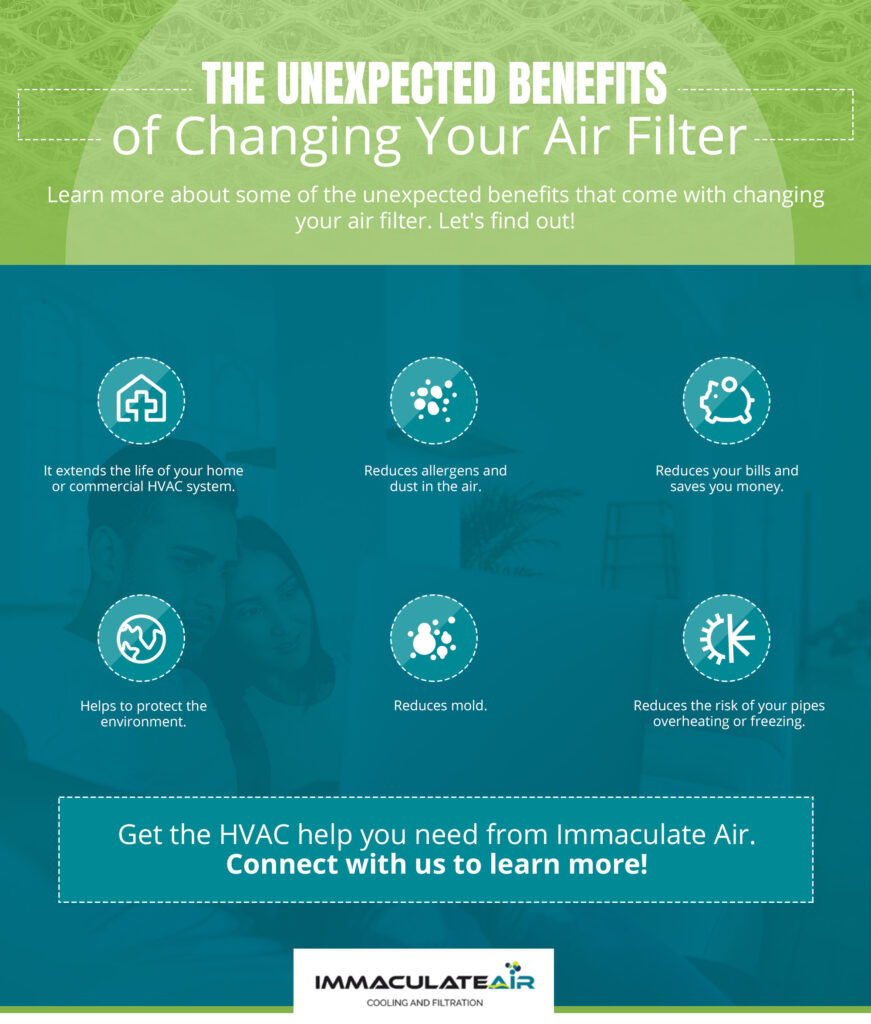
This image is property of immaculateairinc.com.
3. Prolonging HVAC System Lifespan
Regularly maintaining and replacing air filters can significantly extend the lifespan of your HVAC system. By minimizing wear and tear, preventing dust build-up in system components, and avoiding costly system replacements, air filters play a crucial role in ensuring the longevity of your HVAC system.
3.1 Minimizing Wear and Tear
When air filters are dirty or clogged, the HVAC system has to work harder to maintain proper airflow. This increased strain can lead to premature wear and tear on the system’s components, such as the blower motor, fan, and heat exchangers. By keeping the air filters clean, you minimize the risk of unnecessary damage and extend the lifespan of these vital components.
3.2 Preventing Dust Build-Up in System Components
Dust and debris can accumulate in various parts of the HVAC system, including the coils, ductwork, and blower motor. Over time, this build-up can impede airflow, reduce efficiency, and potentially damage the system. Air filters act as the first line of defense, capturing dust and preventing it from entering these sensitive components, which helps keep the system running smoothly.
3.3 Avoiding Costly System Replacements
By taking care of your HVAC system and ensuring that air filters are regularly maintained, you can avoid costly system replacements. When the system is well-maintained and operates efficiently, it is less likely to experience major breakdowns or failures that may require complete system replacements. This not only saves you money in the long run but also provides peace of mind knowing that your HVAC system will continue to function effectively.
4. Improving System Performance
Air filters play a vital role in improving the overall performance of HVAC systems. From facilitating proper air circulation to reducing strain on equipment, air filters contribute to enhanced cooling and heating efficiency.
4.1 Facilitating Proper Air Circulation
Proper air circulation is essential for maintaining a comfortable indoor environment. Air filters help ensure that air flows smoothly through the HVAC system, reaching every corner of your living or working space. This promotes even distribution of heated or cooled air, resulting in consistent temperatures and enhanced comfort.
4.2 Promoting System Balance
When air filters are clean and free of debris, they help maintain a balance in the HVAC system. Balanced airflow prevents hot or cold spots in the room and ensures that the system efficiently delivers conditioned air where it is needed.
4.3 Reducing Strain on Equipment
When the air filters are dirty or clogged, the HVAC system has to work harder to push air through the obstruction. This increased strain can lead to unnecessary wear and tear on the system’s components, resulting in reduced performance and potential breakdowns. By regularly replacing or cleaning air filters, you reduce the strain on the system and promote optimal performance.
4.4 Enhancing Cooling/Heating Efficiency
Clean air filters contribute to improved cooling and heating efficiency. When air can easily pass through the HVAC system without hindrance, the system can cool or heat the air more efficiently. This leads to reduced energy consumption, increased comfort, and lower utility bills.
This image is property of lh6.googleusercontent.com.
5. Reducing Maintenance and Repair Costs
By maintaining clean and functioning air filters, you can significantly reduce maintenance and repair costs associated with HVAC systems. The proper functioning of air filters helps decrease the frequency of repairs, extends the time between maintenance, and lowers replacement part costs.
5.1 Decreasing Frequency of Repairs
Regularly replacing or cleaning air filters can decrease the frequency of repairs needed for your HVAC system. When air filters are kept clean, the system operates more efficiently, reducing the likelihood of breakdowns or malfunctions that require costly repairs.
5.2 Extending Time Between Maintenance
A well-maintained HVAC system with clean air filters requires less frequent professional maintenance. This means you can extend the time between routine HVAC tune-ups, saving both time and money in the process.
5.3 Lowering Replacement Part Costs
When the HVAC system has to compensate for dirty air filters by working harder, it can put additional stress on various components. This increased strain can lead to the need for replacement parts, such as motors, fans, and coils. By regularly maintaining air filters, you minimize the risk of costly component replacements, reducing overall repair costs.
6. Health Benefits for Occupants
Clean air filters in HVAC systems offer numerous health benefits for the occupants of a building. By reducing respiratory issues, minimizing allergic reactions, and enhancing overall well-being, air filters contribute to a healthier and more comfortable indoor environment.
6.1 Reducing Respiratory Issues
Dirty air filters can harbor airborne particles, such as dust, pollen, and pet dander, which can worsen respiratory conditions and lead to respiratory discomfort. By capturing these particles, air filters help reduce the risk of respiratory issues, such as coughing, wheezing, and shortness of breath.
6.2 Minimizing Allergic Reactions
For individuals with allergies, air filters play a crucial role in minimizing allergic reactions. Airborne allergens, such as pollen, mold spores, and pet dander, can trigger sneezing, itching, and watery eyes. By effectively filtering these allergens, air filters provide relief and create a more allergy-friendly environment.
6.3 Enhancing Overall Well-being
Breathing clean, fresh air can have a positive impact on overall well-being. Clean air filters in HVAC systems ensure that the air you breathe is free from harmful particles and contaminants. This promotes a healthier indoor environment, reduces the risk of respiratory illnesses, and enhances the overall well-being of occupants.
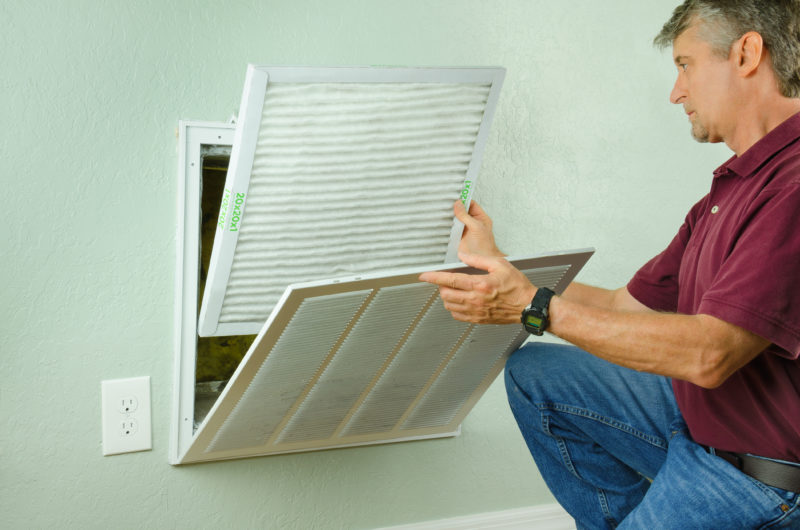
This image is property of www.delair.com.
7. Meeting Safety and Regulatory Standards
Air filters play a crucial role in meeting safety and regulatory standards in various industries. By complying with industry standards, reducing fire hazards, ensuring proper system ventilation, and adhering to indoor air quality guidelines, air filters contribute to a safe and healthy environment.
7.1 Complying with Industry Standards
Different industries have specific safety and regulatory standards in place to ensure the well-being of occupants. Air filters are often a requirement to comply with these standards, as they help maintain clean air and prevent the circulation of potential hazards.
7.2 Reducing Fire Hazards
Air filters can help reduce fire hazards in HVAC systems. When dust and debris accumulate around electrical components, there is an increased risk of an electrical fire. Air filters capture these particles, preventing them from reaching sensitive areas and reducing the risk of fire.
7.3 Ensuring Proper System Ventilation
Proper ventilation is essential for maintaining a healthy indoor environment. Air filters play a crucial role in ensuring that the HVAC system provides adequate ventilation throughout the building, allowing for the exchange of stale air with fresh, filtered air.
7.4 Adhering to Indoor Air Quality Guidelines
Indoor air quality guidelines are in place to protect the health and well-being of occupants. Air filters help meet these guidelines by capturing pollutants and ensuring that the air circulating within the building meets or exceeds the recommended levels for clean and healthy air.
8. Preventing Damage to HVAC Components
Air filters act as a protective barrier, preventing damage to vital HVAC components. By shielding coils and heat exchangers, avoiding clogging of ductwork, protecting blower and fan components, and preventing system overheating, air filters contribute to the longevity of the system.
8.1 Shielding Coils and Heat Exchangers
Dust and debris can accumulate on coils and heat exchangers, reducing their efficiency and potentially causing damage. Air filters help shield these crucial components by capturing particles before they have a chance to settle. This ensures that the coils and heat exchangers can function properly and contribute to efficient heating and cooling.
8.2 Avoiding Clogging of Ductwork
Ductwork is responsible for distributing conditioned air throughout the building. When air filters are neglected, dust and debris can accumulate in the ducts, leading to clogs and reduced airflow. Regularly maintaining air filters prevents this build-up, ensuring that the ductwork remains clear and unobstructed.
8.3 Protecting Blower and Fan Components
The blower and fan components of an HVAC system are essential for proper airflow. When air filters are clogged or dirty, these components can be subjected to increased strain, potentially leading to damage or breakdowns. By maintaining clean air filters, you protect the blower and fan components, promoting optimal airflow and preventing premature failures.
8.4 Preventing System Overheating
Air filters contribute to preventing system overheating by promoting proper airflow and preventing the buildup of dust and debris on heat-producing components. Overheating can lead to system malfunctions, decreased efficiency, and potential damage. Clean air filters help maintain a cool and well-regulated system temperature, ensuring the HVAC system operates at its best.
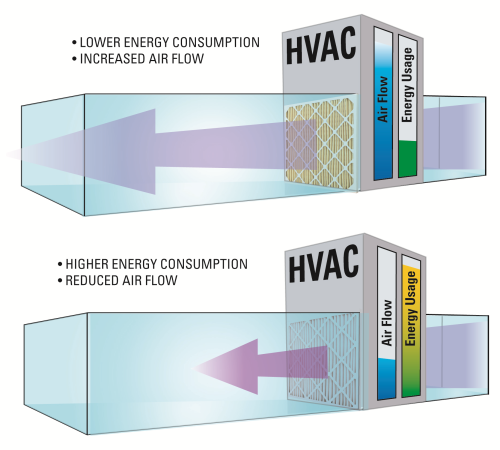
This image is property of www.filtsep.com.
10. Enhancing Overall Comfort
At the end of the day, air filters in HVAC systems contribute to enhancing overall comfort for occupants. By maintaining consistent temperature, improving airflow, preventing stale air, and reducing humidity levels, air filters create a comfortable and pleasant indoor environment.
10.1 Maintaining Consistent Temperature
Properly functioning air filters ensure that conditioned air is evenly distributed throughout the space, resulting in consistent temperatures from room to room. This helps create a comfortable environment where everyone can enjoy a consistent level of warmth or coolness.
10.2 Improving Airflow
Air filters play a crucial role in optimizing airflow. By keeping the filters clean and free of debris, air can flow smoothly and freely through the HVAC system. Improved airflow not only enhances the performance and efficiency of the system but also contributes to a more comfortable indoor environment.
10.3 Preventing Stale Air
Air filters help prevent the circulation of stale air by capturing and removing airborne particles. Stale air can lead to an uncomfortable and stuffy environment, which is not conducive to productivity or relaxation. With clean air filters, you can ensure the air in your living or working space is fresh and continuously circulated.
10.4 Reducing Humidity Levels
Excess humidity in indoor environments can make the air feel heavy and uncomfortable. Air filters can help reduce humidity levels by capturing moisture and preventing the growth of mold and mildew. By maintaining the appropriate level of humidity, air filters contribute to a comfortable and pleasant living or working space.
In conclusion, air filters are essential components of HVAC systems for numerous reasons. By maintaining indoor air quality, increasing energy efficiency, prolonging HVAC system lifespan, improving system performance, reducing maintenance and repair costs, promoting health benefits for occupants, meeting safety and regulatory standards, preventing damage to HVAC components, minimizing environmental impact, and enhancing overall comfort, air filters play a crucial role in ensuring a healthy, comfortable, and efficient indoor environment. Regular maintenance and replacement of air filters are essential to reap the full benefits they offer. With clean and functioning air filters, you can enjoy clean air, energy savings, and a better quality of life.


